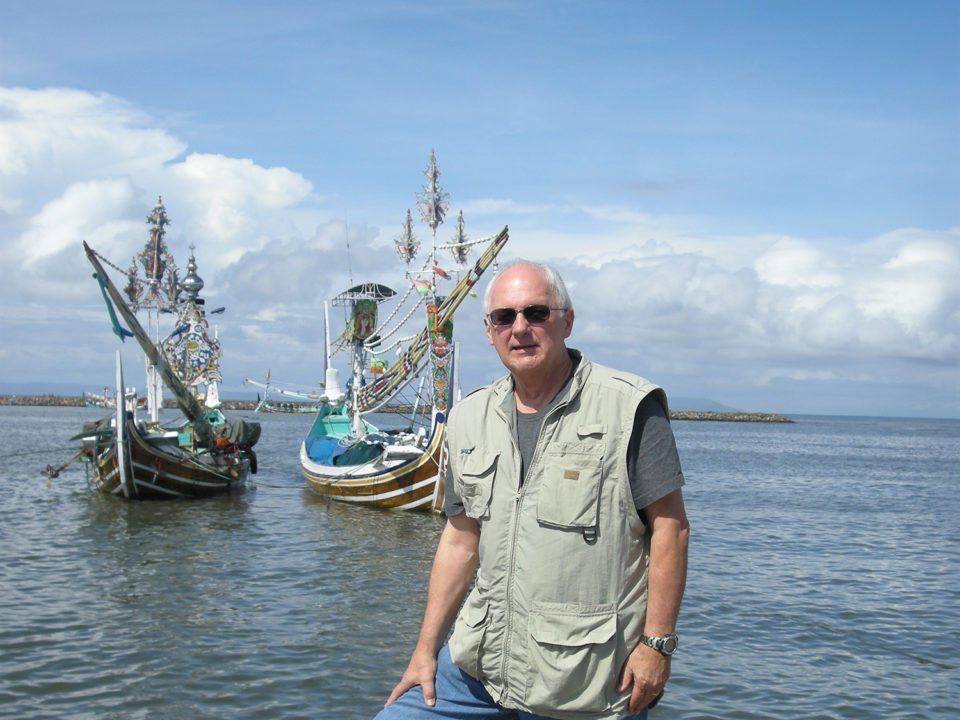Spearheaded by industry veteran Howard Johnson, Seafood & Oceans Leadership Institute envisions strengthened global networks

Not long ago the seafood industry and the majority of environmental non-governmental organizations (NGOs) focusing on oceans could be categorized as opposing forces. Conversations regarding the sustainability of seafood production systems around the world were not always collegial.
NGO-industry partnerships are commonplace today, however, thanks to years of dialogue, a greater understanding of the impacts of commercial fishing and aquaculture, and a willingness to set achievable goals together.
And, of course, solid leadership from all sides.
“We all can understand the need for initiatives that lead to cleaner and healthier oceans,” longtime seafood industry analyst and consultant Howard Johnson told the Advocate.
We want a diverse group of individuals participating, not just by geography, but also by disciplines – not just fish people talking to fish people.
Johnson is now spearheading the Seafood & Oceans Leadership Institute (SOLI), a global leadership development program that earlier this year received startup funds from the Packard Foundation. He’s now seeking participants, or fellows, to take part in shaping the industry’s future.
“I’ve always felt there needed to be more collaboration between NGOs and industry,” he added. “Over time that’s happened.”
The major foundations that support the NGOs’ outreach and research efforts regarding seafood production systems – the Walton Family Foundation, the David & Lucille Packard Foundation and the Gordon and Betty Moore Foundation, for example – have put forth a lot of money to effect change on the water. They have not, however, focused on building leadership capacity, Johnson said.
SOLI started to take shape a few years ago, but really gained momentum last month. At the Global Aquaculture Alliance’s annual GOAL conference next month in Dublin, Ireland, the first of two pilot trainings will be held. Another will take place in November at the China Fisheries & Seafood Expo in Qingdao.
Johnson, who recently worked for Sustainable Fisheries Partnership, hopes that industry participants great and small, NGOs and even potentially governmental figures to join what aims to be a platform for dialogue around critical issues.
“I have high hopes. My vision was that we needed to look at ocean health, food security and social responsibility,” he said. “What we’re doing with these two pilots is demonstrating the concept as a pre-competitive platform for dialogue and leadership.”
Johnson stressed that SOLI will not be foundation-driven, or a platform to support sustainability, per se. “This program will have to be industry driven if it is to succeed,” he said.
By the beginning of 2018, Johnson expects to be able to build the case to convince the industry to support the program, in a similar way to it has for the National Fisheries Institute’s Future Leaders program.
(Editor’s note: GAA Executive Director Wally Stevens is the founder of Future Leaders; the author of this article is a 2008 alum.)
“One of the values is building a network of individuals that stay connected for years That’s worked well [for Future Leaders] and is one of the things I hope SOLI will create on a global scale. We want to bring in people in Asia. Europe, South America, Africa. We want a diverse group of individuals participating, not just by geography, but also by disciplines – not just fish people talking to fish people, we want some tech people, researchers, and maybe at some point, if it has traction, mid- to upper levels of governments.”
An undisclosed sum of starter funds for SOLI was provided by the Packard Foundation, which Johnson has consulted with for more than 10 years and has a career in seafood that spans nearly half a century.
“It’s long overdue,” he said of the leadership initiative. “I’m hoping it’s my last hurrah.”
Author
-

James Wright
Editorial Manager
Global Aquaculture Alliance
Portsmouth, NH, USA
Related Posts

Innovation & Investment
Aquafeed ingredient AlgaPrime wins GAA Innovation Award
A proliferation of alternative feed ingredients has allowed aquaculture to extend the natural resources it depends on. AlgaPrime, packed with the long-chain omega-3 fatty acid DHA, is being recognized as a game-changing innovation for aquaculture feeds.

Innovation & Investment
20 years of the Global Aquaculture Alliance
A timeline of key milestones and achievements by the Global Aquaculture Alliance and its third-party aquaculture certification scheme, Best Aquaculture Practices (BAP).

Innovation & Investment
Shrimp farmers reflect on 20 years of demonstrating responsibility through GAA
Under pressure for environmental impacts during its expansion in the 1990s, shrimp producers and marketplace representatives formed the Global Aquaculture Alliance to hold their industry to higher standards.

Responsibility
White House awards hint at aquaculture’s potential in the United States
The latest Champions of Change awards celebrated the work of change-makers in sustainable seafood, from chefs to fishermen to aquaculture advocates. With innovation and perseverance, the industry may soon meet its vast potential.

